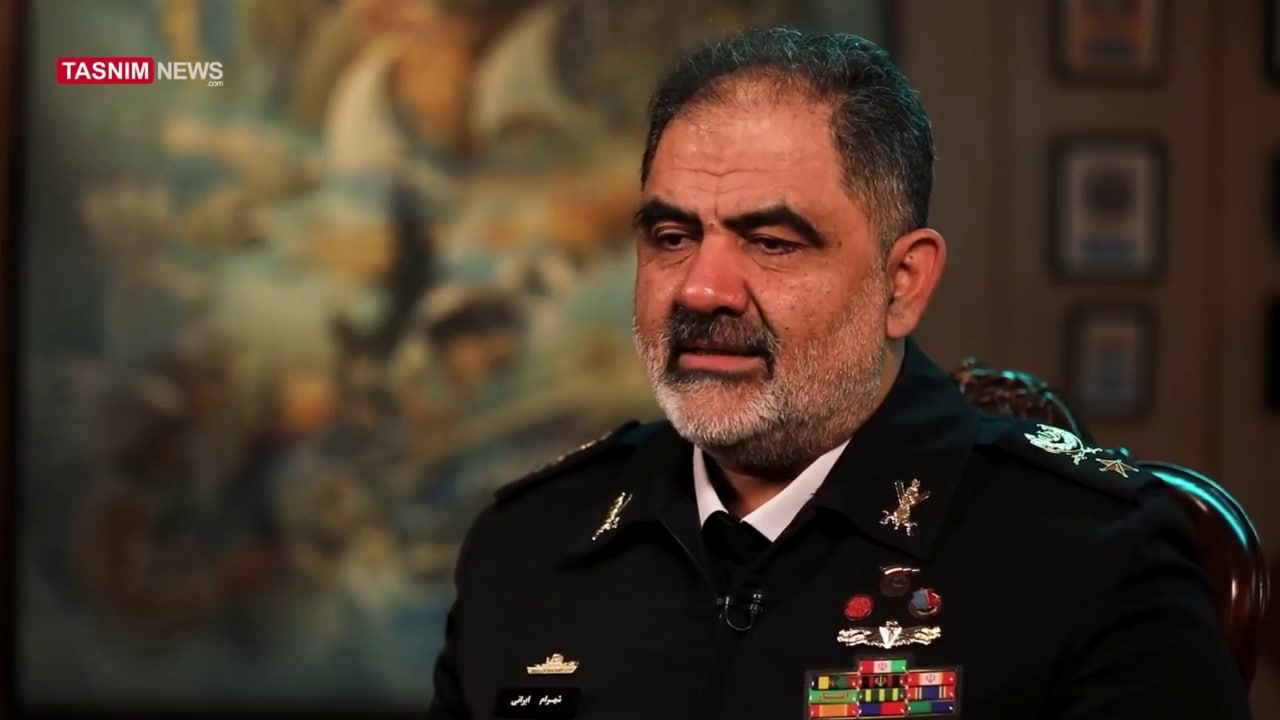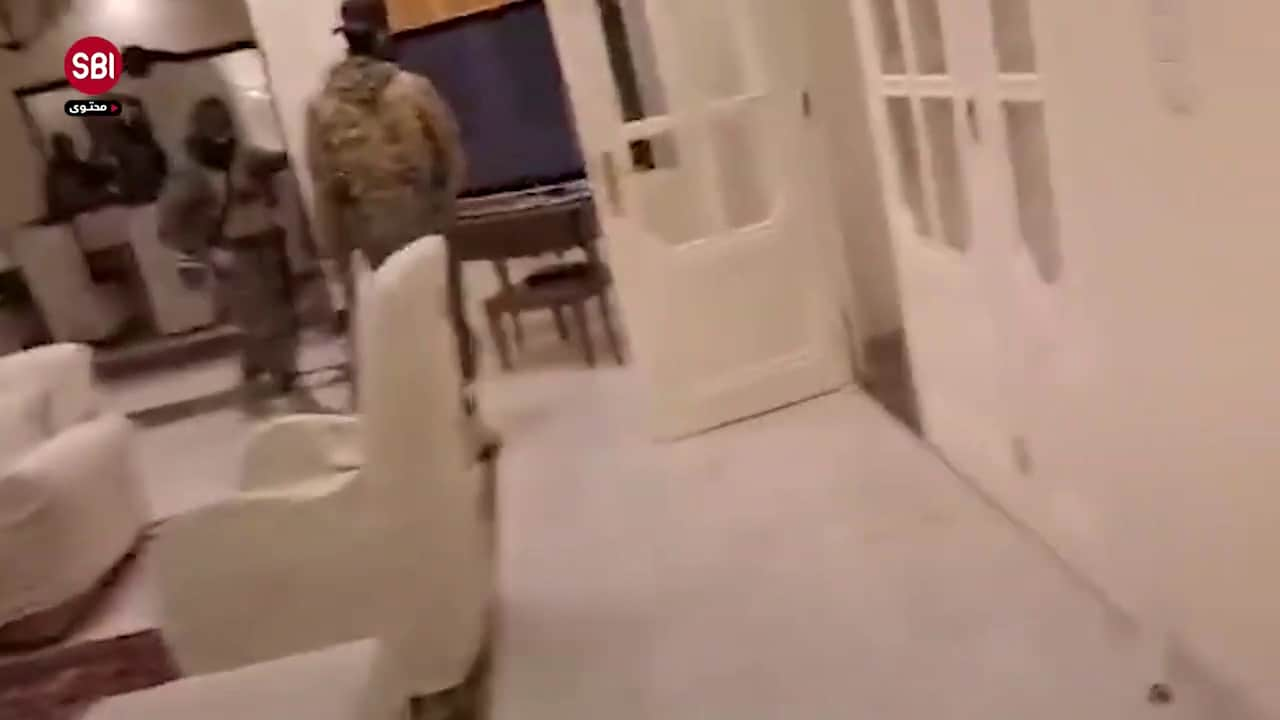
Hoshyar Zebari, a former Iraqi official who has served as Foreign Minister, Finance Minister, and Deputy Prime Minister, said in a May 11, 2020 interview on Al-Sharqiya TV (Iraq) that there is a conflict between the U.S. and Iran taking place on Iraqi soil that is not in Iraq's best interest. He said that the Iraqi government must make decisions and draw clear boundaries with regard to how the Iranians and the Americans can behave in Iraq. He said that the previous Iraqi government had failed to properly balance relations with these two countries, giving off the perception that Iraq was biased towards Iran. In addition, he said that ISIS has recently reared its head again because of the absence of international coalition forces in Iraq, that Iran is under tremendous economic pressure, and that no country can survive while being disconnected from the global financial system. He gave an example that Iraq had agreed to an IMF Stand-By Arrangement (SBA) during its economic crisis in 2014-2015 so that it would be able to confront ISIS more effectively. He described this agreement as a great accomplishment and criticized the government of former Iraqi PM Haider Al-Abadi for ceasing to abide by the SBA.
Hoshyar Zebari: "A conflict [between the U.S. and Iran] is taking place on Iraqi soil. This is not an illusion. This is for real. It is by no means in the best interest of Iraq and the Iraqi government. I think that the previous government failed to balance its relations with America and with Iran. The Iraqi government was perceived as biased towards [the Iranian] side. [Iraqi PM Mustafa] Al-Kadhimi's task is to protect this balance, and to create a positive situation. He should keep Iraq out of this conflict. This, however, requires independent Iraqi decision-making. Hopes are not enough. We must draw a line and tell them not to cross it. [We must say:] 'We will not allow you to intervene in this matter. We will not allow you to bomb embassies that are our guests, or to target forces that we had asked to come to protect us.' You see what I'm saying? Clear and transparent decisions are needed. This cannot be done by expressing hopes and making statements to the media. This is also true with regard to the Americans. There are frameworks for their presence [in Iraq] and it is not an open range where they can do whatever they want. Our relations [with them] must be regulated. The goal of strategic dialogue, which is set to begin in June should the coronavirus circumstances allow for it, is to reexamine these relations in their entirety, including the future of the international, or American, presence in Iraq."
[...]
Interviewer: "There was a tweet by Iranian Supreme Leader Ali Khamenei about the reconciliation between Imam Hassan and Muawiyah bin Abu Sufyan, and it was followed by a tweet by Mohammad Al-Ghabban, the head of the Fatah Alliance in the Iraqi parliament, who asked for U.S. support following the formation of the Al-Kadhimi government. As you know, the Fatah Alliance has made radical statements. They repeatedly demanded the expulsion of U.S. and coalition forces from Iraq. They voted in parliament in favor of expelling these forces. In your opinion, what is the secret behind this shift [in their stance]?"
Zebari: "The tweet by Supreme Leader Khamenei drew the attention of many observers who thought this may be an indication for the beginning of certain contacts. We must not forget that Iran is under tremendous economic pressure..."
Interviewer: "And along came the coronavirus..."
Zebari: "The coronavirus, the isolation... So I believe that they have begun to feel the danger. From my experience of working with them, I can tell you that they are practical people. In addition, the similar statements by the head of the Fatah Alliance mean that the PM can play a positive role in these relations.
[...]
"We must be vigilant because, as you know, ISIS has recently reared its head again. They have carried out many significant attacks."
Interviewer: "Do you think that the absence of the international coalition was the reason for this?"
Zebari: "One of the main reasons, since they had provided air support and intelligence. Absolutely. They have grown tired of this waste of time..."
Interviewer: "With regard to the American withdrawal from most of the bases..."
Zebari: "They call it 'redeployment,' not 'withdrawal.'"
Interviewer: "They have remained in Ain Al-Asad, and at Harir Base in Erbil..."
Zebari: "They have remained in Baghdad Airport, in Ain Al-Asad, and in Erbil, but they have pulled back from the other bases..."
Interviewer: "How do you explain this?"
Zebari: "It was done mostly in order to protect themselves. They were exposed and the redeployment of their forces to several major bases enabled them to better defend themselves and avoid casualties..."
Interviewer: "They moved to more fortified bases..."
Zebari: "That's how I understand it."
[...]
"No country, no matter how rich, can live outside of the global financial system. No country can live outside of the international financial institutions - the International Monetary Fund, the World Bank... Also, [they cannot disregard the fact] that the U.S. dollar dominates the world. In Iraq, we faced a frightening crisis in 2014-2015..."
Interviewer: "When ISIS took over parts of Iraq..."
Zebari: "Yes, and also the oil prices plunged. When I became Minister of Finance - and all the experts at the Ministry of Finance hear me - there was only $700 million in Iraq's budget."
Interviewer: "And there was still the challenge of paying salaries and all the public spending..."
Zebari: "This is why we resorted to taking loans domestically and from abroad. The U.S. and countries in Europe gave us significant support, so that we could cross this stage..."
Interviewer: "And so that we could confront ISIS..."
Zebari: "Right. We agreed on a series of reforms and the day will come when we will talk about all the measures that we have taken..."
Interviewer: "You can talk right now..."
Zebari: "Many people falsely claim that they are the ones who made those tough decisions. In any case, we turned to the IMF and we signed with them a very important financing agreement that also required us to conduct economic reforms. We had to carry out reforms in the infrastructure of..."
Interviewer: "It was an agreement for loans in exchange for reforms."
Zebari: "Absolutely. All these reforms were in Iraq's best interest. It was a Stand-By Arrangement. This was a great accomplishment. Many observers were amazing by the privileges we got from them. But when Mr. Abadi's government saw that the price of oil started going up, they cancelled the agreement and did not abide by it."
















